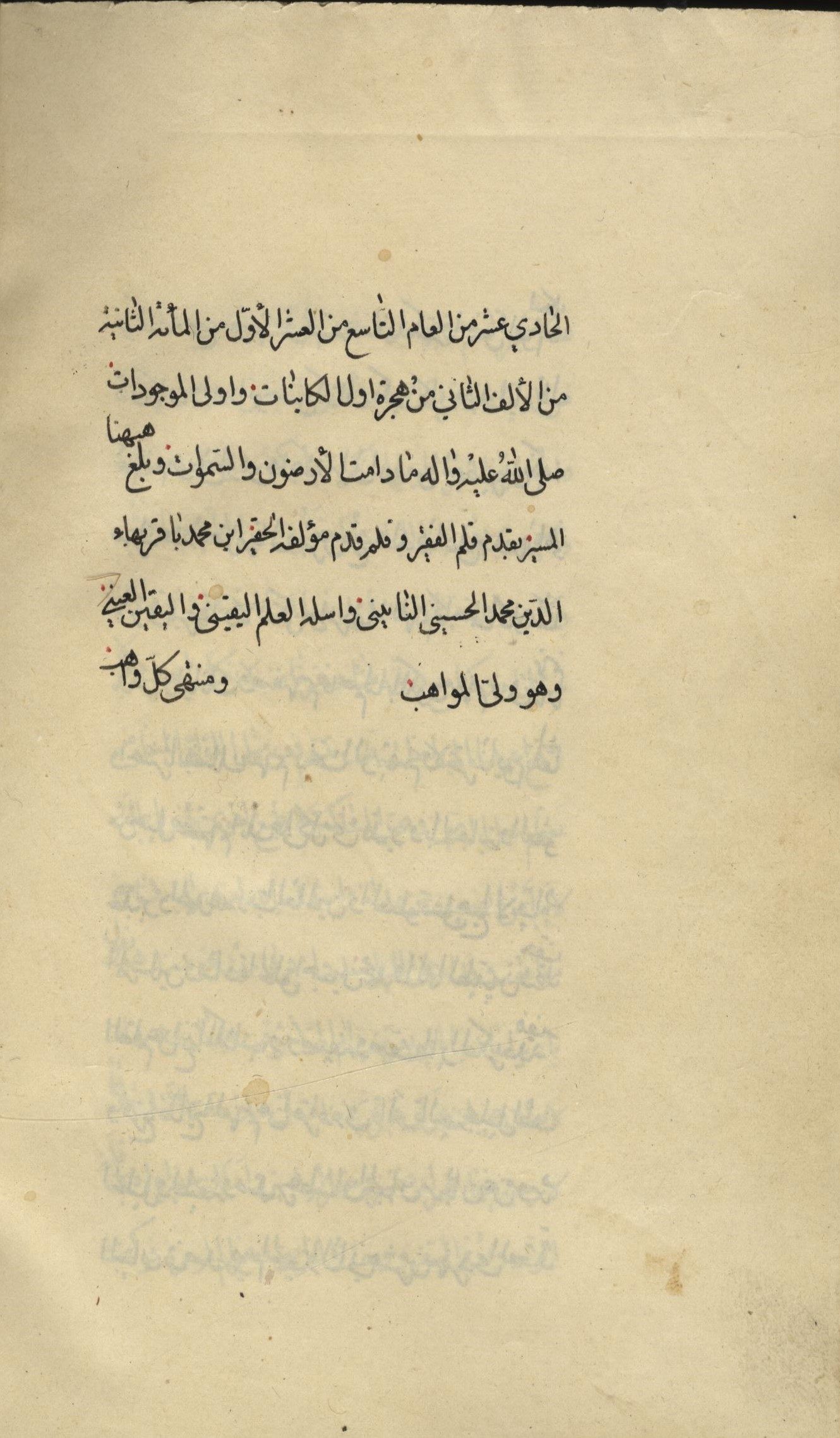Arabic Manuscript. Work on Philosophy and Mysticism.
AL-AMILI, Baha'al-Din Muhammad ibn Husayn (1547-1621).
Synopsis
Baha’al-din al-Amili was an Islamic scholar, philosopher, architect, mathematician, astronomer, and poet who lived in the late 16th and early 17th centuries in Safavid Iran. He was born in Baalbek, Ottoman Syria but immigrated in his childhood to Safavid Iran with the rest of his family. He was one of the earliest astronomers in the Islamic world to suggest the possibility of the Earth’s movement prior to the spread of the Copernican theory. He is considered one of the main co-founders of Isfahan School of Islamic Philosophy.
He wrote over 100 treatises and books in different topics, in Arabic and Persian. Baha’ al-Din was also an adept of mysticism. He had a distinct Sufi leaning for which he was criticized by Mohammad Baqer Majlesi. During his travels he dressed like a Dervish and frequented Sufi circles. He also appears in the chain of both the Nurbakhshi and Ni’matullāhī Sufi orders. In the work called “Resāla fi’l-waḥda al-wojūdīya” (Exposition of the concept of Wahdat al-Wujud (Unity of Existences), he states that the Sufis are the true believers, calls for an unbiased assessment of their utterances,[7] and refers to his own mystical experiences. His Persian poetry is also replete with mystical allusions and symbols.[7] At the same time, Shaykh Baha’ al-Din calls for strict adherence to the Sharia as a prerequisite for embarking on the Tariqah and did not hold a high view of antinomian mysticism.








